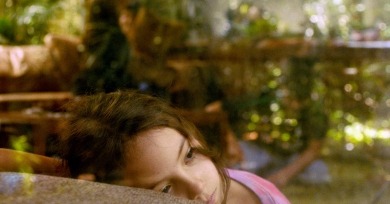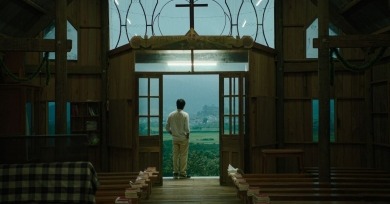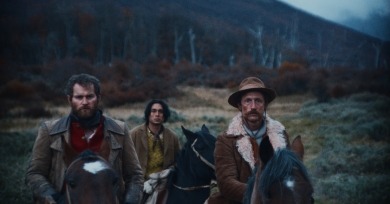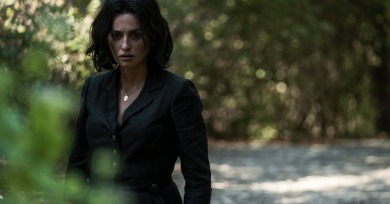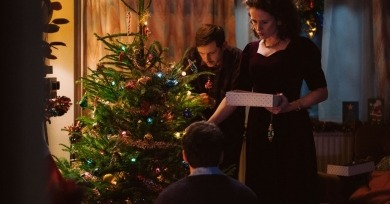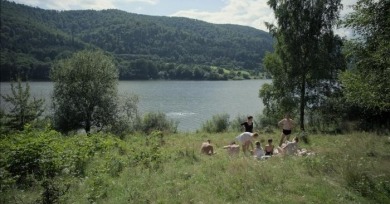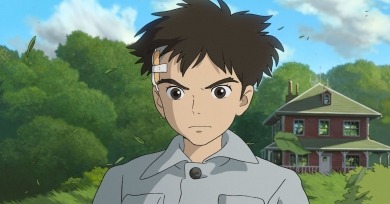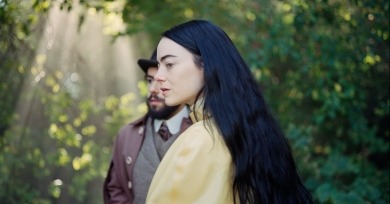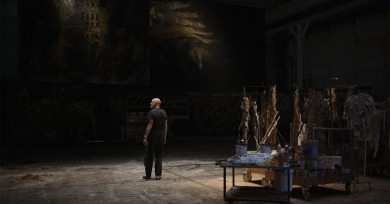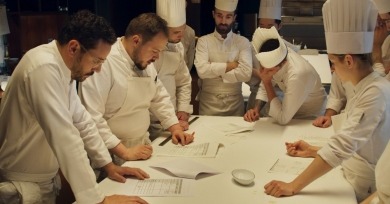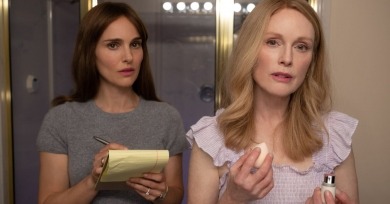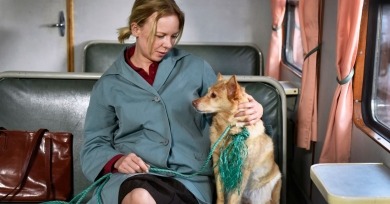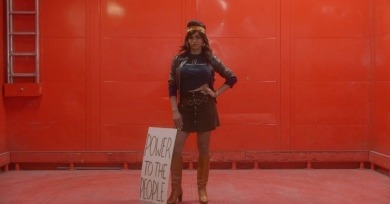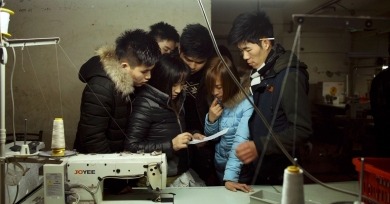Reviews
On paper, these characters may sound primed for coarse caricature, these scenarios potentially played for broad laughs. But Avilés tunes her film to a minor key, elegantly and arrestingly whipping up a fine frenzy of mayhem, mundanities, merriment, and doom.
At many points, the story is deemphasized in favor of aesthetic and philosophical experimentation. In these sequences, rain, and the vivid soundscape it creates, work together with long shots, extended takes, and slow pacing to demonstrate the convergence of mortal and sacred realms.
A brutally effective journey into hell on earth, The Settlers reckons with the violent birth of modern-day Chile at the hands of Spanish colonizers all too willing to treat the people indigenous to the land as an obstacle to be cleared away like timber in the name of “progress.”
Exciting and dynamic as the film is, what is most impressive about Ferrari is the finesse and restraint Michael Mann exercises over dramatizing the more intimate facts of Ferrari’s complicated life.
It is a narrative of clear-cut boundaries and simple symmetries, but within them it contains galaxies of emotion; Haigh has found the precise outlines in which to color in a meditation on the strange, liminal experience of gay male existence.
Obeying an ethic of factual authenticity that, for the first time, grounds his often too insistently spare approach, Glazer advances a picture of moral rot that is horribly evocative. It’s telling that this tipping point reveals itself only after one has been released from the film’s spell with the space and distance of reflection.
With its sprawling story and opaque world-building, The Boy and the Heron is hard to summarize. But that diffuseness is part of the charm. That its world is not fully knowable feels in keeping with both the youthful perspective of Mahito and the narcissistic myopia of his Grand Uncle.
Poor Things is strangely, even shockingly, hopeful, despite being the most overtly political film yet from Lanthimos. It is also arguably his first feminist film, though I suspect many will argue about its efficacy as such.
Kiefer’s paintings, sculptures, and architectural pieces are physically and metaphorically huge and heavy, burdened by their weighty materials and the history they reference.
This seat at the top table is a privilege afforded to the very few, given that the stripped-back format of Menus-Plaisirs exists completely outside the grammatical norms of the ultra-popular, commoditized tabloid documentaries littering the top ten rubrics of our streaming services.
Haynes is doing something extraordinarily delicate and difficult in May December, reminding viewers, with the lightest of touches, that we are all implicated and indulgent in the processes of social, cultural, and sexual exploitation that define the modern consciousness.
While hardly the sole practitioner of deadpan cinematic whimsy, Kaurismaki can push his methods close to magical realism; his little stories about ordinary people swing tremendous emotional heft.
As the voices interweave and sometimes overlap, the work begins to transcend both the individualistic and the monolithic, and recasts Woolf’s Orlando: A Biography as the story of a community, or what could be the story of humanity.
Each year, around 300,000 migrant laborers come to Huzhou, a major textile hub in eastern China, seeking jobs at 18,000 different small workshops. From 2014 to 2019, filmmaker Wang Bing embedded himself in the population there. By his reckoning, he and his crew shot 2,600 hours of footage.
